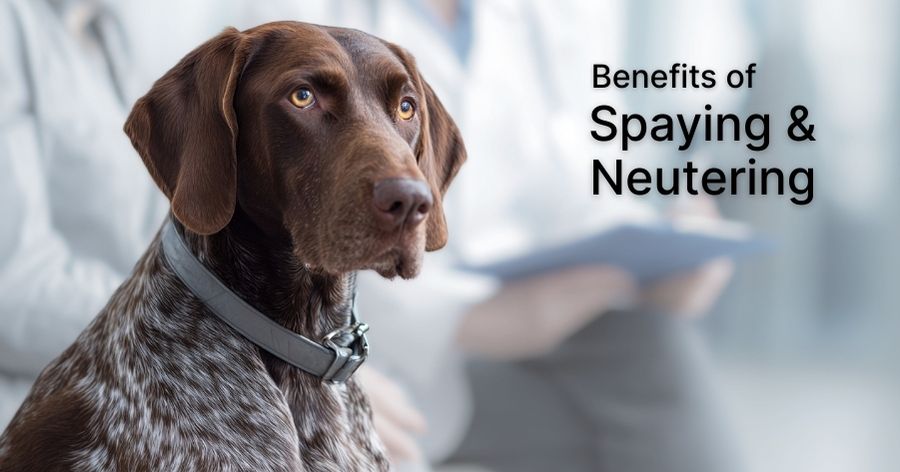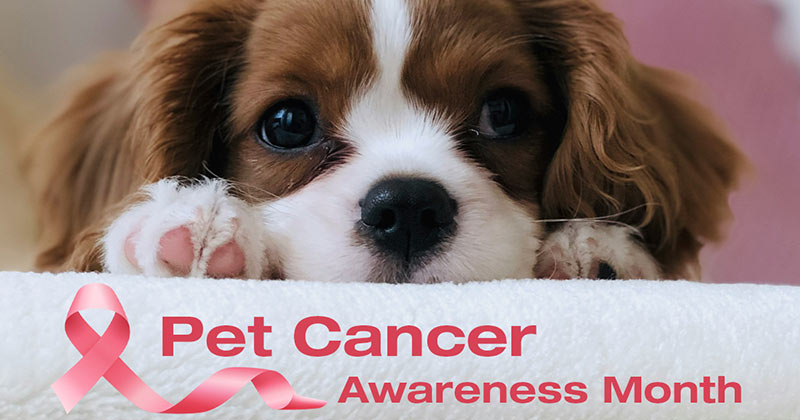
Sharing treats with your dog can be a fun way to bond, especially when they look at you with those hopeful eyes. But not all human snacks are safe for pets. If you've ever wondered, “Can dogs eat marshmallows?” you're not alone. Although it may seem harmless to offer a sugary bite, marshmallows can pose several risks to your dog's health. Let’s dive into why marshmallows aren't a good choice for your dog and explore some safer, healthier alternatives. For any questions about your dog’s diet, The Ridge Veterinary Clinic in Omaha, NE, is here to help!
Marshmallows are made with sugar, gelatin, and water, sometimes with added flavors like vanilla. While these ingredients may seem simple, they aren't good for your canine companion. Here's why you should avoid feeding marshmallows to your pet.
High Sugar Content
Consuming too much sugar can contribute to weight gain, dental problems, and even lead to conditions like diabetes. Unlike humans, dogs aren't built to process sugary foods, and it's best to avoid these snacks altogether.
The Hidden Dangers of Xylitol
Some marshmallows are sweetened with xylitol, an artificial sweetener that's highly toxic to dogs. A small amount of xylitol can cause a dangerous drop in your dog’s blood sugar, leading to symptoms like vomiting, weakness, and in severe cases, liver failure. If your dog eats anything containing xylitol, contact your veterinarian at The Ridge Veterinary Clinic immediately.
While marshmallows that don’t contain xylitol may not be dangerously toxic, they still pose several risks for your dog. Here are a few concerns to consider:
Potential Digestive Upset
Marshmallows, even those free of xylitol, can still upset your dog’s stomach due to their high sugar content. Dogs may experience symptoms like diarrhea or vomiting after eating these sweet treats, especially those with sensitive digestive systems.
Choking Hazards
Marshmallows have a soft, sticky texture that can make it tough for dogs to chew and swallow. Larger marshmallows, in particular, pose a choking risk, especially for smaller dogs. Always be cautious about the size and texture of any food your dog consumes.
If your dog manages to sneak a marshmallow or two, here's what you should do based on the situation:
Observe Your Dog
If your dog consumes a few marshmallows without xylitol, keep an eye on them for any signs of digestive trouble. Watch for symptoms like vomiting, diarrhea, or unusual tiredness. If these symptoms occur, give The Ridge Veterinary Clinic a call to discuss your next steps.
Contact Your Vet If Xylitol Was Ingested
If your dog eats marshmallows containing xylitol, treat it as an emergency. Xylitol can be incredibly harmful, even in small amounts. Call your vet or a pet poison control hotline immediately for guidance.
While marshmallows should be avoided, there are plenty of healthier snack options that are safe for dogs. Here are a few alternatives that will satisfy your dog’s cravings without the risks:
Fresh Fruits
Fruits like apples (without seeds), bananas, and blueberries offer your dog a naturally sweet taste along with valuable nutrients that can benefit their health. These fruits are much healthier than sugary treats and are easy to serve in bite-sized pieces.
Dog-Specific Treats
There are numerous treats made specifically for dogs that take their nutritional needs into account. Look for treat options with low sugar content, especially if your dog has any health concerns like obesity. These treats come in various flavors and textures, so there’s something for every pup.
Homemade Dog Treats
If you enjoy baking, you can make your own dog-friendly snacks using safe ingredients like pumpkin, oats, or peanut butter (xylitol-free). Homemade treats allow you to control exactly what your dog is eating, giving you peace of mind while your dog enjoys a delicious treat.
The best way to keep your dog safe is by preventing them from accessing foods that could harm them. Here are a few tips to avoid any accidental snacking:
If your dog has eaten marshmallows or you're unsure about any food they've consumed, it’s always a good idea to check with your veterinarian. Marshmallows, while not always toxic, aren't a safe snack for dogs. However, there are many dog-friendly treats you can provide instead. For any concerns about your dog’s diet, call The Ridge Veterinary Clinic in Omaha, NE, at (402) 334-1580 or request an appointment online.
Closed daily from 12:30-1:30pm;
Thursdays Closed 12:30-2:00pm


